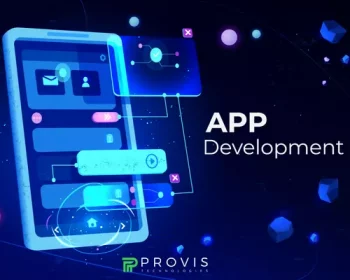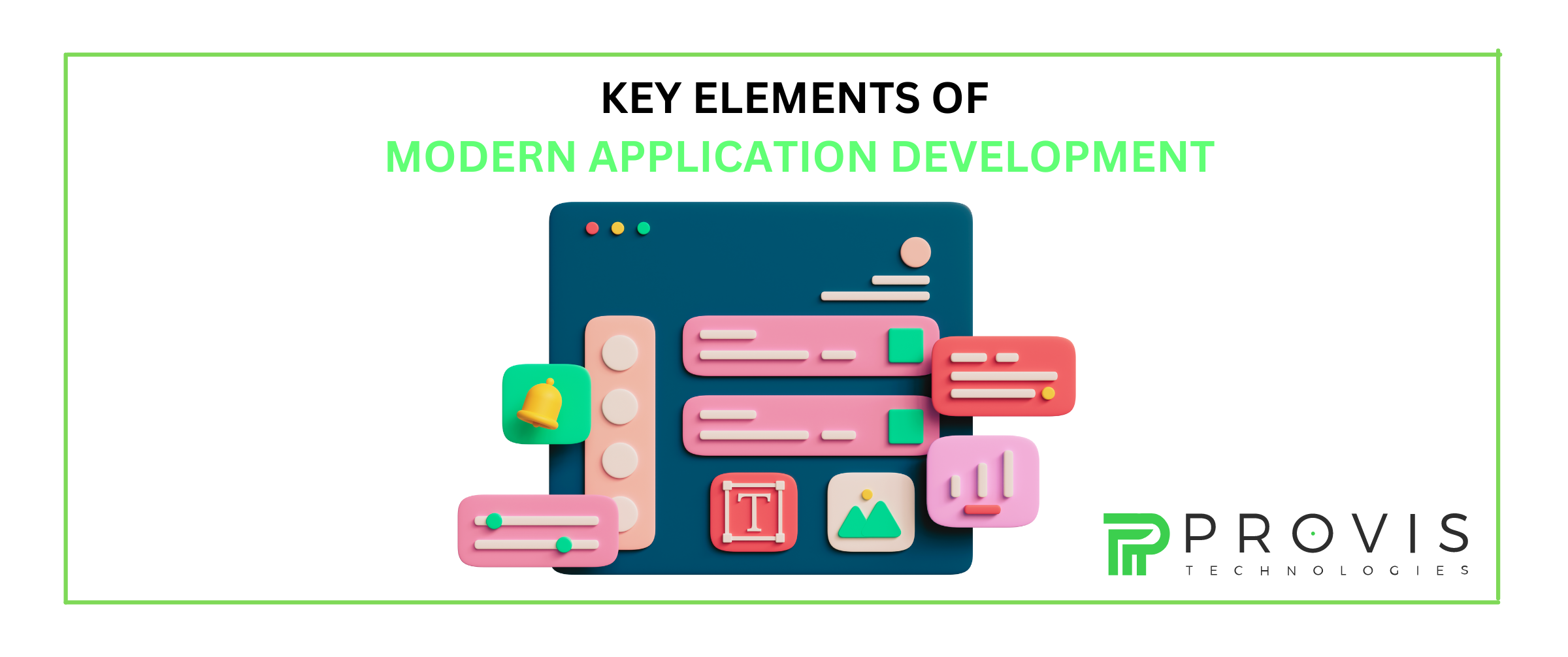The application development process has seen numerous changes. We have all witnessed changes in application development from previous versions. Modern application development approaches are a great advantage for the company.
Modern applications are way too hard to get right. The tools and technologies are changing rapidly. Users want resilient, secure, and highly available applications.
Every updated version brings out some new features. However, the process of application development has completely changed in a better way. Now applications are built with an agile framework, easy modifications, and interactive designs.
The application development approach has shifted significantly to cloud-native architectures. Customer-centric apps provide personalized experiences and respond to queries in real time.
But what is Modern Application Development?
Modern Application Development
Modern application development is available globally and scalable to millions of users simultaneously. It includes IoT applications, web and mobile backends, artificial intelligence and machine learning workloads, microservice backends, and many more.
It is an approach through which developers innovate rapidly with cloud-native architectures through the combination of DevOps, AI, managed databases, a serverless operational model, and built-in monitoring.
Modern applications resolve the issues of slow-loading pages, long release times, and inflexible software systems. Scalability is quite important, as millions of users will be using the application simultaneously. Modern applications offer agility, scalability, flexibility, and portability.
Organizations must keep up with rapid changes to stay ahead of the competition. In addition, modern applications run on multiple platforms to deliver portability. As a result, it is easy to manage and update and offers agility according to new technological changes.
It relies on the support of UX specialists. These applications operate faster by putting AI into native architecture. This infusion helps reduce manual tasks and accelerate workflows.
These applications will power the future of these industries.
Also Read: All You Must Know about Flutter App Development
Key elements of modern application development
Microservices
Microservices are a set of small and independent services. The application code and dependencies are packed into distinct blocks, making shifting the architecture from one infrastructure to another easy.
Application development is difficult without microservices. Therefore, microservices are important as they change the nature of application architecture and the application development process.
In microservices applications, developers create several individual applications instead of one. In addition, it connects microservices using a standard-based application programming interface, reducing the need to write complex code.
It enables modifications to the code regarding any changes without affecting the core functionality.
Modularity
Applications can be scaled up and down to meet a company’s different and specific requirements. It can adapt to various business models. It can adjust to different models and be modified for different IT models.
This container inclusion helps with the reusability of components.
Cloud-Native Architecture
It allows an application to run in modern, dynamic environments with workload provisioning and working in the cloud. Microservices, containers, service mesh, and APIs demonstrate this approach.
When coupled with vigorous automation, it enables developers to create changes frequently. Therefore, speed and agility are important in cloud infrastructure.
Containers
The majority of organizations run their applications on containers. Containers provide portability and consistency across different environments. It drives modern application efficiency. Container is a standard unit of modern application.
It isolates microservices and their dependencies from the infrastructure and ensures they work uniformly despite variations between development and staging. In addition, they are quite different from virtual machines because they virtualize operating systems rather than hardware.
Containers make applications scalable and portable. However, developers need to factor container images and scan them into the delivery pipeline while deploying applications.
Automation
The next important element of modern application strategy is automation. It is introduced at all stages of the application development lifecycle.
Automation is required because applications should be scalable and adaptable to changing requirements. With continuous integration and deployment, they can be turned into smaller and incremental builds.
Automated deployment uses CI/CD for rapid innovation and deployment, simultaneously saving time and money.
Application development, deployment, testing, releasing, and monitoring are automated in the process. The tools of automation are
CI/CD
Continuous integration and continuous deployment go hand in hand with modern application development. Under CI, developing and testing is fully automated.
With continuous deployment, when a new artifact is developed, it is automatically placed in the desired environment and deployed. From coding to production, a developer can automate the entire process.
It creates a pipeline for fast testing and delivers small code increments. With this, organizations can release a small number of codes instead of a vast code.
API Centric Development
Nowadays, applications are API-centric. APIs are used to integrate with applications and other systems. Major web apps are designed with an API-centric approach.
APIs are lightweight and don’t require the integration of a full library in the application.
API security and performance testing should be a top priority as the modern application development process workflow relies on them. An application programming interface facilitates integration. It offers an additional layer of security between the server and the data.
It improves workflows by enabling developers to test features and functionality. Without APIs, many businesses can jeopardize their productivity and performance. It is beneficial for developers as it makes the information quickly accessible.

Common Requirements for Modern Application Development
- A modern application should be scalable to handle millions of users and large columns of data. In addition, the app should be strong enough without any need for redesigning in the future.
- Applications should be designed with keeping portability in mind. In the future, if an organization wants to migrate to another platform, it should provide a seamless experience without any technical disruptions.
- The application should be resilient so that if any problem arises, it must prevent data loss and recover amazingly to provide a great user experience.
- Developers should make sure of the data’s confidentiality and security. It should be able to detect any security issues.
- Ensure system performance concerning degradation. For a great user experience, it should generate automatic notifications regarding any problem. The app should provide fewer delays, and great thought puts.
Also Check: Importance of Progressive Web Apps (PWAs) in E-commerce
Conclusion
Modern application development can be troublesome, but it can be beneficial in the long run. A successful application development process requires experience and professional competencies.
As we are witnessing digital advancements and the Internet of Things, this creates core dependencies on modern application development. Responsive and agile application development processes are important.
The elements listed in this blog provide application flexibility, high performance, agility, resilience, and portability. However, the development process can be complex, and developers may face challenges regarding security and performance, but the greater the challenges, the greater the benefits.
We at Provis Technologies develop apps with the latest trends and technologies. The developers here design user-friendly and responsive apps. The use of advanced technology to create high-quality apps.
Our team of proficient developers can tackle modern application development and provide high-performance apps. At Provis Technologies, we would be glad to build your applications.
We build world-class, unbeatable native iOS and Android apps that meet business needs.
We develop standard apps in any category. Our agile team delivers robust mobile apps that provide an amazing customer experience.
Regardless of business type, we provide diverse mobile applications.
Written By
Author's Picks
- How to Build a FinTech App: A Step-by-Step Guide
- 05/09/2024
- 20 Best Free Live Streaming Apps
- 23/11/2024
- How to Choose a Mobile App Development Framework: A Beginner’s Guide
- 26/08/2024
Categories
- AI for Startups
- AI in Web Development
- AI Integration
- AI Platforms
- AI Prompt
- AI Tools
- AI Trading Software
- Android App
- Android vs iOS Development
- Angular
- API
- API Development
- App
- app development
- App Idea
- App User Feedback
- Application
- Artificial Intelligence
- Audit Services
- Automotive Industry
- Awards and Recognition
- Business Consulting
- Business Website
- Chatbots
- CRM
- CRM for Financial Advisors
- Custom CRM
- Custom SaaS
- Custom Website
- Customer Service
- dashboard design
- Developing a Mobile App
- Digital Business
- E-commerce
- EMR Integration
- Finance
- Financial Advisors
- Financial Advisors
- GIT
- Health Insurance
- iOS App
- iOS App Development
- IoT Mobile App Development
- IoT Platforms
- IT Audit Services
- IT Consulting
- IT Strategies
- Java Development
- Laravel
- Lean Canvas
- Learning Management System
- Logistics Apps
- Mobile App Development
- MVP
- Native App
- News Aggregator Site
- OTT
- Outsourcing IT
- Payment Gateway
- predictive analysis
- Product Launch Strategy
- Progressive Web App (PWA)
- Prototype
- Recommender Systems
- Ruby
- SaaS
- SaaS Application
- SaaS Business
- SaaS Company
- SaaS Development
- SaaS Product
- SaaS Project
- Sales Funnel
- SEO
- Shopping Cart
- Software Development
- SSL and TLS
- Startup Checklist
- Technology
- Tetradic Color Scheme
- UI/UX Design Company
- Unit Testing
- User Flow
- User Testing
- Web Development
- Web Performance Optimization
- website Maintenance Services
- Website Migration Service
- Website Speed Optimization
- WooCommerce
- WordPress





